这位硅谷大佬,投资了特朗普和Facebook
观点 2017-4-13
译者:傅磊 编审:王求乐(名川资本)
编者按
大名鼎鼎的Peter Thiel,写起来并不容易! 作为硅谷如雷贯耳的企业家和投资家,他是个怪杰,阅历丰富,在创业、投资、慈善等各方面都取得骄人成就。
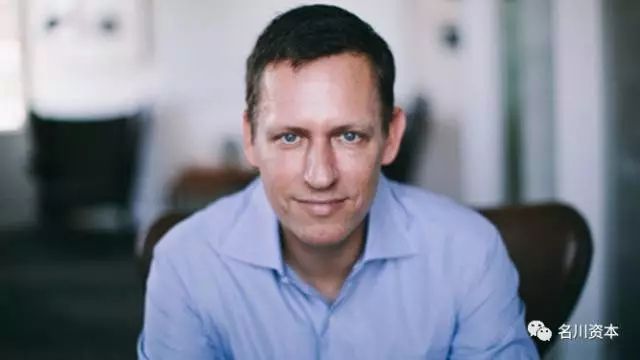
Peter Thiel最早是德国人,1967年出生在法兰克福后不久,就和家人迁徙到美国,然后在非洲度过童年,高中才又返回到美国,这波折的少年经历也是醉了!他本科在斯坦福读商业管理,又在母校获得法律硕士学位。Peter毕业后先在法律界和投资界混过几年。1998年,Peter洞见了互联网对支付行业的需求前景,于是联合创立PayPal,并担任公司CEO,直到2002年PayPal作价15亿美金卖给eBay。
财务自由之后的Peter,没有选择骄奢淫逸的生活,而是继续在几个不同行业创业,每一个都大名鼎鼎。他先玩起了二级市场,创立了著名对冲基金Clarium Capital,AUM达到80亿美金。随后他又组建Palantir,这是大数据行业公认全球排名第一的公司。2005年Peter与PayPal的几个联合创始人成立“Founder’s Fund”,成功投资了Linkedin、SpaceX、Palantir、Airbnb、Knewton、Lyft、Spotify、Stripe、ZocDoc等科技公司。
Peter才40多岁,却已经历过许多事情,有四件最叫人称奇:
一、 作为创业者,1998年他和Elon Musk等人一起创立PayPal,担任CEO。PayPal的创始团队成员后来各自在不同的领域继续做出巨大贡献,却相互支持和帮衬,因此这帮家伙被称作“PayPal黑帮”。关于PayPal的故事有一本书,叫做《支付战争》,作者是“PayPal黑帮”成员之一,该书真实地还原了PayPal如何诞生,如何野蛮成长,如何两次更换CEO,又如何应对融资紧张、突破增长瓶颈,在竞争者凶猛围剿与平台商霸王条款的夹击下,逆境求生,改变业务模式,最终完成IPO,并成功出售给竞争对手eBay的全过程。该书文笔生动,叙事跌宕,很耐看。
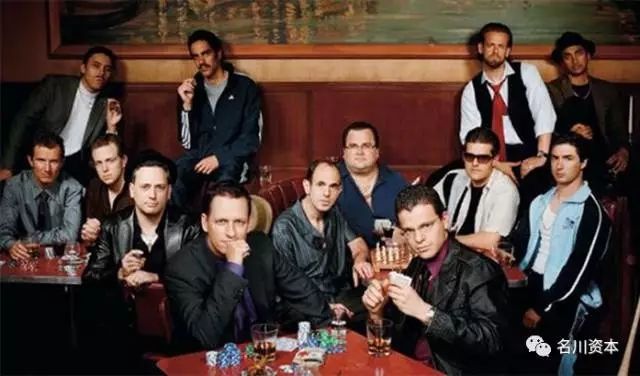
上图为PayPal黑帮
二、作为硅谷最顶级的大牛和头牌投资人之一,Peter投资和支持:Facebook、Linkedin、Airbnb、Palantir、SpaceX等许多顶尖科技企业。 他还在斯坦福大学讲课,讲述投资和创业的理论,在讲义基础上他写就《Zero to One》,分享其投资的心得及深邃的思考,一时被投资界奉为圭臬,洛阳纸贵!
三、在政治上,他是美国科技界的另类,一贯对政治表现出无甚兴趣的Peter,却一反常态: 在2016年的美国总统大选中,Peter孤身一人对抗美国科技界、华尔街和硅谷创投圈(这些有钱人和偏左人士普遍支持野心勃勃的希拉里老太),通过捐款和站台,公开支持共和党右翼特朗普。刚开始,硅谷科技界差点笑掉大牙,但这一次他又赌对了,特朗普顺利当选,令硅谷和科技界大佬既羞又愤! 大选之后,Peter出面召集这些大佬与特朗普会面,意图和解,但似效果不彰。
四、最令人叫绝的,是Peter长达十年复仇八卦媒体Gawker的举动。Gawker一贯以各类八卦消息来搏出位,深受其害的美国名流对其非常忌惮和憎恨。 2007年,Gawker突然爆料Peter是个Gay(同性恋),双方从此结下梁子。其后十年,Peter一直寻找各种报复的机会,终于在另一名“受害者”Hulk Hogan的案子上找到突破口,Peter个人为Hulk Hogan支付了上千万美金的诉讼费,终于扳倒千百名人憎恶的Gawker,法庭判决Gawker支付高达1.15亿美金的赔偿金(估计这相当于这家媒体要倒闭了吧)。此事值得天朝的自媒体同学们引以为戒。

上图为Gawker
Peter Thiel一直在鼓励人们有大胆和充分的想象力,要将目光投向更久远、更有革命性的领域。 因此,他对硅谷最近几年的创新不足提出批评,认为Twitter(相当于新浪微博)是VC投的不伦不类的怪胎,不屑一顾地将其形容为:“我们本想要一辆可以飞的汽车,而得到的却是140个字符!”
本博之前读过Peter的力作《0到1》,这基本上被奉为风险投资的教科书,值得每一个初入行的小朋友都详加琢磨,书里Peter提出了颇具颠覆色彩的观点:“资本主义与竞争相互对立”、“开局稀里糊涂没得救”、“‘产品会说话’是谎言”、“高超的销售推广技巧本身就能创造垄断” 、“快乐的公司不相同,相同的公司不快乐”等,与此前大家心中的“竞争鼓励创新”、“垄断是万恶之源”、“创业开局并不重要,可以频繁试错”、“酒香不怕巷子深,销售推广并不重要”、等观念大相径庭。Steve Denning写的读书笔记《Peter Thiel: Seven Surprising Keys To Market-Creating Innovation》对这本书的理解最为精到,特此翻译。
In his book, Zero To One, serial entrepreneur Peter Thiel offers seven—sometimes surprising-- tools for doing just that. They are what he calls, “the seven questions that every market-creating business must answer.”
在《0到1》这本书中,连续创业者皮特毫不吝啬地分享了七条规律,教大伙如何缔造伟大的公司。他在书中提到每一个“创造市场的企业”都需要回答下面7个问题。
1、The Engineering Question: “Do you have a breakthrough technology?”工程问题:“你有突破性的技术吗?”
The key, says Thiel, is to go from horizontal progress, which is easy, to vertical progress, which is hard. “Horizontal or extensive progress means copying things that work— going from 1 to n. Horizontal progress is easy to imagine because we already know what it looks like. Vertical or intensive progress means doing new things—going from 0 to 1. Vertical progress is harder to imagine because it requires doing something nobody else has ever done.”
皮特说“横向发展”很简单,“纵向发展”是关键难点。“横向发展就是复制已经跑通的事情-从1到n,这很容易想象,因为复制前就已经见过。纵向发展是创新-从0到1。纵向发展很难想象,因为之前没有人完成过。”
In effect, vertical progress is new technology. Breakthrough innovations come from technology that is radically better. A ten or twenty percent improvement in performance won’t do it. It needs to be something like a tenfold improvement in performance to qualify as breakthrough. For example, Thiel cites as one reason why so many green technology companies failed over the last decade is that the performance improvement of solar panels and so on was modest. Breakthrough technology means that the performance improvement has to be large enough to be genuinely exciting to customers.
新技术发明就是“纵向发展”,真正牛B的技术必然带来颠覆性的进步。突破性创新根本看不上10~20%的效率提升,它的目标是提升效率10倍以上。皮特举了一个例子,在过去10年,众多科技公司(比如太阳能板)最终歇菜的一个原因就是效率提升太慢。突破性的技术是那种让客户感到非常兴奋的东西。
Thiel rejects the frequently-heard advice to “think incrementally.” He embraces grand visions, and those who seek to create something truly great. Small, incremental steps may be safe path forward, but they won’t lead to the market-creating innovations unless there is a big-picture vision showing where you are heading.
“一步一脚印”这种传统观念皮特并不认可。他崇拜有远见和敢于大胆创新的创业者。“一步一脚印”是一个保守路线,但除非有“蓝图”指引前进方向,否则不可能创造出新的市场。
For those who would argue that sustainable competitive advantage is no longer possible, and that competitive advantage is now transient, Thiel argues provocatively: you aren’t trying and thinking hard enough! He advises against taking the easy way out of pursuing merely transient advantages, which will lead down the path to fierce and bloody competition and ultimately zero profits. Instead, you need to do the hard work of creating truly breakthrough technology.
一些人认为核心竞争力是暂时的,不可能持续存在。皮特认为这是胡扯,只是为不努力找的一个借口。他认为费劲去获得一些短暂优势没有意义,因为这很快就会被竞争对手模仿,导致激烈竞争,最后导致赚不到钱。相反他鼓励挑战困难,获得突破性的技术。
2.The Timing Question: “Is now the time to start this business?”时间问题:“现在是创业的时机吗?”
You can be too early, or too late. The trick is to time it just right. For instance, “In 2009, it was easy to think that the government would continue to support cleantech: ‘green jobs’ were a political priority, federal funds were already earmarked, and Congress even seemed likely to pass cap-and-trade legislation. But where others saw generous subsidies that could flow indefinitely, Tesla CEO Elon Musk rightly saw a one-time-only opportunity. In January 2010— about a year and a half before Solyndra imploded under the Obama administration and politicized the subsidy question— Tesla secured a $ 465 million loan from the U.S. Department of Energy. A half-billion-dollar subsidy was unthinkable in the mid-2000s. It’s unthinkable today. There was only one moment where that was possible, and Tesla played it perfectly.”
创业时踩准时间很难,你要么太早,要么太晚。在2009年时,大家都坚信美国政府会大力支持清洁能源,因为环保是当时首要政绩指标,联邦政府友划拨了“绿色能源项目贷款”,国会即将通过“上限和交易”法案(限制碳排放量)。在这样一系列红利下,大家都认为环保补贴会源源不断,但是特斯拉的CEO埃隆.马斯克把这当做唯一一次机会。在2010年1月,特斯拉幸运地获得了从美国能源局4.65亿美金贷款。1年半后Solyndra(美国光伏组件供应商,2009年获得5.35亿美元政府贷款,是第一个获得能源局“绿色能源项目的贷款”的企业)宣布破产,引起了公众对于能源补贴和奥巴马政府的质疑。想想看即便在今天企业能获得近5亿美金的补贴都不可思议,更何况是在1990s。机会稍纵即逝,特斯拉完美地踩准了点。
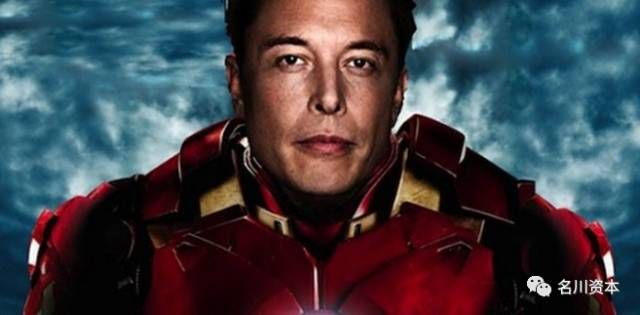
3.The Monopoly Question: “Are you starting with a big share of a small market?”垄断问题:“你能占领一个细分市场吗?”
Thiel hates competition. Like Michael Porter, he views strategy as mainly about coping with competition. The way you cope with competition is essentially by avoiding it. “Monopoly,” he declares flatly, “is the condition of every successful business.”
皮特讨厌竞争。麦克.波特认为公司制定战略就是为了应付竞争。对付竞争最简单的方法就是避开它。皮特认为“垄断”是每一个成功生意的先决条件。
In economics, it is otherwise. “Perfect competition’ is considered both the ideal and the default state in Economics 101,” says Thiel. “Under perfect competition, in the long run no company makes an economic profit. The opposite of perfect competition is monopoly. Whereas a competitive firm must sell at the market price, a monopoly owns its market, so it can set its own prices. Since it has no competition, it produces at the quantity and price combination that maximizes its profits.”
在经济学中,“垄断”是另外一副面孔。在教科书中“充分竞争”被认为是不存在的理想状态。“在充分竞争条件下,没有公司能长期获利”。“充分竞争”的另一个极端就是“垄断”。如果一家公司想要在市场中占有一席之地,它就必须按照市场定价。垄断却不一样,公司占有整个市场,因此它能自主定价。因为没有竞争对手,它能淡定地寻找产量和售价的最优组合,获取最大利润。
Let’s face it, Thiel says: successful market-creating firms, are de facto monopolies. For instance, Google for Thiel is a de facto monopoly in the field of search, with 68 percent of the market. (Microsoft and Yahoo! have 19 percent and 10 percent respectively.) That’s a good thing, says Thiel.
皮特说成功创造新市场的企业事实上就是垄断者。例如谷歌垄断了搜索市场,市占率达到68%(微软和雅虎才分别占到19%和10%)。垄断一个好现象。
One reason that people can’t see the positive role of monopolies, Thiel says, is that everyone is “telling lies.” De facto monopolies like Google, pretend that they are facing fierce competition, so they won’t face an anti-trust lawsuit. On the other hand, average (mediocre) businesses understate competition and pretend they are “unique” and “in a league of their own” when in fact they are not significantly different from their competitors; in reality, they are struggling to make profits in the face of competition from their lookalike rivals.
大众之所以对垄断有偏见,是因为所有垄断企业都在“撒谎”。谷歌从来不说自己是垄断者,它装作面对激烈的竞争,其实是为了逃避“反垄断”调查。滑稽的是,平庸的公司反而喜欢装B,声称 “自己独一无二”、“世上只此一家”,但是实际上它们和竞争对手雷同,钱赚的很辛苦。
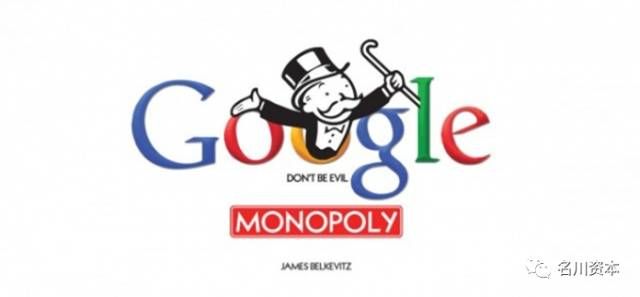
In Thiel’s perspective, creative monopolies are valuable for society. For Thiel, capitalism is the very opposite of competition. De facto creative monopolies play out in succession. Thus the de facto of monopoly of IBM was followed by the de facto monopoly of Microsoft, which in turn was followed by the de facto monopoly of Google. “Monopolies drive progress because the promise of years or even decades of monopoly profits provides a powerful incentive to innovate. Then monopolies can keep innovating because profits enable them to make the long-term plans and to finance the ambitious research projects that firms locked in competition can’t dream of.”
在皮特眼中,有创造力的垄断公司对社会有益。资本主义妨碍竞争。垄断宝座随着时间几次易主。在过去几十年中,IBM先斩获垄断者称号,随后被微软取代,现在又换做谷歌。长时间垄断带来的丰厚利润能驱使企业创新,进而驱动企业进步。垄断者能持续创新,因为高利润使企业有条件做长远规划,敢大把钞票投入到创新研发中,反观那些在激烈竞争中挣扎的企业自身都难保,更别提创新了。
Another reason that people and government regulators can’t see the value of monopolies in their true light is that the world we live in today, unlike the board game of Monopoly where the number of properties is fixed, is dynamic: “It’s possible to invent new and better things. Creative monopolists give customers more choices by adding entirely new categories of abundance to the world. Creative monopolies aren’t just good for the rest of society; they’re powerful engines for making it better.”
大家和政府监管层看不到垄断的好处的另一个原因是,他们忽视了我们生活在一个增长的世界,而不像“大富翁”里那样土地是有限的。我们是能研发出更好的新产品的。创新的垄断者实际上丰富了产品市场,给客户更多的选择,他们不仅对存量市场有益,还能开辟新的市场。
The key to success is therefore being different. Tolstoy told us in Anna Karenina that all happy families are the same. Thiel tells us that in business, it’s the opposite. Unlike families, all happy (i.e. profitable) companies are different. It’s the companies that are the same that are unhappy. They are doomed to die in a blood-bath of competition.
成功的关键在于“与众不同”。托尔斯泰在小说《安娜.卡列尼娜》中告诉读者,所有快乐的家庭都一样。皮特告诉我们在商场中是截然相反的,所有快乐(高利润)的公司都是不同的。相同的公司不会快乐,因为他们注定会激烈的竞争中死去。
Thiel states his thesis even more strongly. “In the real world outside economic theory, every business is successful exactly to the extent that it does something others cannot. Monopoly is therefore not a pathology or an exception.”
皮特对上述理论坚信不疑。在现实世界中,公司成功正是因为它完成了别人完成不了的事情”。把垄断当做一个 “病态”或者“意外”的事情太荒谬了。
Thiel sees task of business as essentially one of creating an enduring monopoly through breakthrough technology. The technology has the capacity to generate a very large future cash flow. LinkedIn and Twitter are valued highly, not because of any profits today, but because they are perceived as having the capacity to generate massive cash flow over the coming decades.
皮特认为企业基本的使命就是创造突破性技术,由此来保持垄断。科技给公司带来长远收益。领英和推特目前估值很高,并不是因为公司现在赚钱多,而是因为它们今后几十年能产生巨大的利润。
“The overwhelming importance of future profits is counterintuitive even in Silicon Valley. For a company to be valuable it must grow and endure, but many entrepreneurs focus only on short-term growth. They have an excuse: growth is easy to measure, but durability isn’t.”
甚至连硅谷的创业公司都会忽视企业未来盈利的重要性。公司只有持续增长才有价值,但是大部分企业家视野很短。他们找了个借口“增长容易考量,可持续性却很难量化”。
4.The People Question: “Do you have the right team?”人的问题:“你的团队如何?”
One of the keys to success is passion and that means forming the right team from the start. “As a general rule, everyone you involve with your company should be involved full-time…anyone who doesn’t own stock options or draw a regular salary from your company is fundamentally misaligned. At the margin, they’ll be biased to claim value in the near term, not help you create more in the future. That’s why hiring consultants doesn’t work. Part-time employees don’t work. Even working remotely should be avoided… If you’re deciding whether to bring someone on board, the decision is binary. Ken Kesey was right: you’re either on the bus or off the bus.”
想要成功,创业激情至关重要,合适的团队会充满激情。有一个基本原则,团队成员必须是全职的,那些没有期权或者不拿工资的人就不能称作一条船上的。他们是边缘员工,想的是赚快钱,可能会损害公司的长期利益。这也解释了为什么请顾问对公司没什么卵用。兼职和远程办公也不太靠谱。当你决策是否拉某人入伙时,选择只有两个。Ken Kesey说的在理:“你要么在船上,要么在船下”。
5.The Distribution Question: “Can you market and sell your product?”渠道问题:“你会营销和销售产品吗?”
The conventional wisdom in startups is: build a great product and customers will come. Thiel says no. You need a strong sales and distribution network that is built into the operation from the outset. The specific mechanisms will be very different, ranging from low-cost mass market products to multi-million dollar products that have to be sold one by one. But whatever your product, it has to get distributed by strong marketing and sales.
传统理念是“酒香不怕巷子深”,皮特觉着这太过时了。公司需要从开始就建立起一套强大的销售和渠道网络。无论从客单价低、数量大的传统销售,还是到千万美金客单价的复杂销售,不同的商品也许具体的销售机制会不同,但任何商品,都需要成熟的市场和销售策略。
“Nerds might wish that distribution could be ignored and salesmen banished to another planet. All of us want to believe that we make up our own minds, that sales doesn’t work on us. But it’s not true. Everybody has a product to sell— no matter whether you’re an employee, a founder, or an investor.”
“书呆子不重视销售,他们认为地球上不应该存在销售人员。消费者都觉着自己很理智,销售策略不会影响他们,但事实并不这样。每个人都需要推销,无论你是雇员、创始人还是投资人。
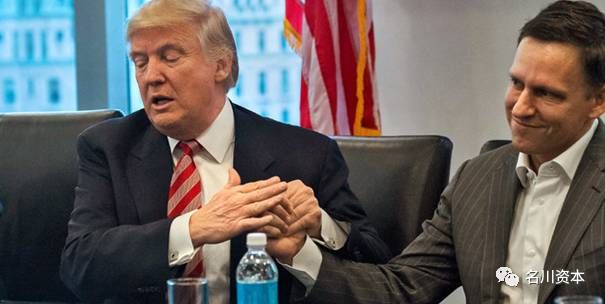
6.The Durability Question: “Will your business exist ten years from now?”耐久问题:“你的生意10年后还在吗?”
The key question here is: “Will this business still be around a decade from now? Numbers alone won’t tell you the answer; instead you must think critically about the qualitative characteristics of your business.”
“这个生意10年后还存在吗?这个问题的关键之处不在时间本身,而在于公司究竟拥有什么样的优秀特质。”
There are four main factors to be considered: (1) proprietary technology; (2) network effects; (3) economies of scale; and (4) strong branding. Firms like Google, Facebook, Twitter have these elements. Zynga and Groupon don’t.
皮特列出了成功企业的四个法宝:(1)技术专利(2)网络效应(3)规模经济(4)品牌优势。谷歌、脸书、推特这些伟大公司拥有这四个法宝,但是Zynga和Groupon却没有。
The way to build an enduringly successful monopoly is to start by creating a monopoly in a small market, just as Facebook started by dominating the social space at Harvard University. If you can’t dominate even a small market, there is no hope of dominating a large market. “Every startup is small at the start. Every monopoly dominates a large share of its market. Therefore, every startup should start with a very small market. Always err on the side of starting too small. The reason is simple: it’s easier to dominate a small market than a large one.”
想要坐上行业垄断宝座,你最好先主宰一个细分市场,脸书在创立初期就是占领了哈佛大学。如果你连一个小的市场都拿不下,就别吹牛要垄断一个大的市场了。“创业公司开始都很小,但垄断企业能占领市场绝大份额。从小市场切入是明智之举,原因太简单了:占领一个小市场更容易。”
Once you have dominated a small market, then move into related and broader markets. Thus Amazon began with books, and then steadily spread into virtually every product. What matters is the endgame, not being the first mover. “Being the first mover doesn’t do you any good if someone else comes along and unseats you. It’s much better to be the last mover—that is, to make the last great development in a specific market and enjoy years or even decades of monopoly profits. The way to do that is to dominate a small niche and scale up from there, toward your ambitious long-term vision…. ‘you must study the endgame before everything else.’”
一旦在一个细分市场站稳脚跟,就应该逐步扩张到相关且更广阔的市场。亚马逊先开始专注卖书,但是后来逐渐扩展到卖几乎所有商品。比赛在意的是结果,而不是开端。“假设对手能追上你,那开始跑得快毫无疑义。成为赛道最后一名选手很有意义,相当于公司在一个市场获得关键突破,并且能享受长时间垄断带来的利润。想要达到上述目标,你需要占领一个细分市场,然后朝着宏伟的目标向外扩张”。“在发力前,你最好弄明白比赛获胜的规则。”
7.The Secret Question: “Do you have a unique opportunity that others don’t see?”商机问题:“你是不是发现了独一无二的商机?”
Thiel is persistent in seeking out secrets. “What valuable company is nobody building? Every correct answer is necessarily a secret: something important and unknown, something hard to do but doable. If there are many secrets left in the world, there are probably many world-changing companies yet to be started.” Your job, says Thiel, is to find one of those secrets, which can form the basis of a rich, enduring firm with decades of monopoly profits.
皮特一直在在寻找商业机密。“有没有大家还没发现的商机?正确答案肯定不为大众所知,商机往往是重要且未知的,困难但是能完成的。如果世界上还有很多未被发觉的商机,那就肯定还会有很多改变世界的伟大公司将会出现。”皮特说创业者的工作就是找出这些秘密,这些秘密是搭建垄断企业的基石。
原文请见:https://www.forbes.com